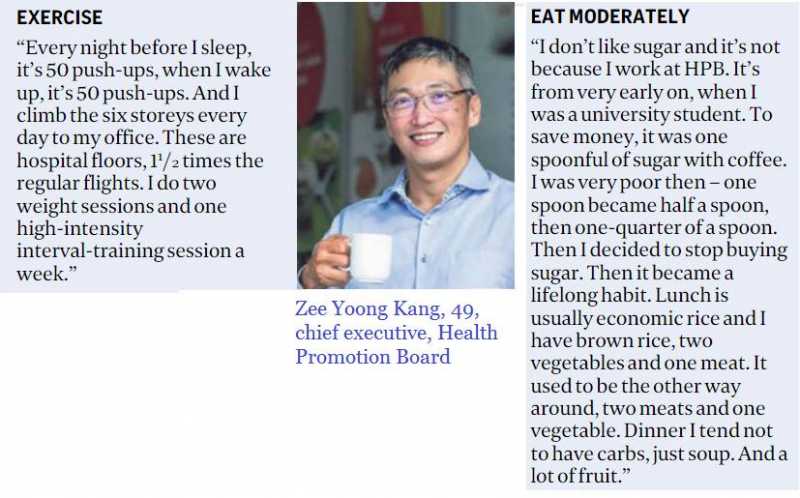- Posts: 365
- Thank you received: 19
 NextInsight
a hub for serious investors
NextInsight
a hub for serious investors
Your health is your wealth
6 years 6 months ago #24979
by min1xyz
Replied by min1xyz on topic Your health is your wealth
The Fasting Cure Is No Fad
New research is showing the profound benefits—for weight, longevity and fighting disease—of eating only during limited hours
By Andreas Michalsen
Aug. 1, 2019 12:21 pm ET
Fasting is one of the biggest weight-loss trends to arise in recent years. Endorsed by A-list celebrities and the subject of a spate of best-selling books, it was the eighth most-Googled diet in America in 2018.
But fasting shouldn’t be dismissed as just another fad. At the Charité University Hospital in Berlin, I’ve employed what’s called intermittent fasting, or time-restricted eating, to help patients with an array of chronic conditions. These include diabetes, high blood pressure, rheumatism and bowel diseases, as well as pain syndromes such as migraines and osteoarthritis.
There are different ways to go about it, but I advise patients to omit either dinner or breakfast, so that they don’t ingest any food for at least 14 hours at a stretch. That makes lunch the most important meal of the day. It also reduces the time spent each day processing food and lengthens the period devoted to cleansing and restoring the body’s cells, both of which have positive health effects.
New research is showing the profound benefits—for weight, longevity and fighting disease—of eating only during limited hours
By Andreas Michalsen
Aug. 1, 2019 12:21 pm ET
Fasting is one of the biggest weight-loss trends to arise in recent years. Endorsed by A-list celebrities and the subject of a spate of best-selling books, it was the eighth most-Googled diet in America in 2018.
But fasting shouldn’t be dismissed as just another fad. At the Charité University Hospital in Berlin, I’ve employed what’s called intermittent fasting, or time-restricted eating, to help patients with an array of chronic conditions. These include diabetes, high blood pressure, rheumatism and bowel diseases, as well as pain syndromes such as migraines and osteoarthritis.
There are different ways to go about it, but I advise patients to omit either dinner or breakfast, so that they don’t ingest any food for at least 14 hours at a stretch. That makes lunch the most important meal of the day. It also reduces the time spent each day processing food and lengthens the period devoted to cleansing and restoring the body’s cells, both of which have positive health effects.
Please Log in to join the conversation.
6 years 5 months ago - 6 years 5 months ago #24987
by min1xyz
Replied by min1xyz on topic Your health is your wealth
Longevity In A Bottle
The Targeting Aging with Metformin (TAME) trial is a multicenter study in the US that aims to enroll 3,000 men and women between the ages of 65 and 79 to test whether metformin—a prescription drug used to treat type 2 diabetes—can delay the onset of aging-related diseases.
Read more from Asian Scientist Magazine at: www.asianscientist.com/2018/08/print/nmn...rmin-longevity-pill/
The Targeting Aging with Metformin (TAME) trial is a multicenter study in the US that aims to enroll 3,000 men and women between the ages of 65 and 79 to test whether metformin—a prescription drug used to treat type 2 diabetes—can delay the onset of aging-related diseases.
Read more from Asian Scientist Magazine at: www.asianscientist.com/2018/08/print/nmn...rmin-longevity-pill/
Last edit: 6 years 5 months ago by min1xyz.
Please Log in to join the conversation.
6 years 4 months ago #25025
by min1xyz
Graphic shows the major significance of NAD+ to various health aspects of our bodies.
Exercise and diet help. So will NAD+ boosters which are already available as supplements. These are mainly Nicotinamide Riboside (brand name Tru Niagen) and NMN.
Source: Prof David Sinclair's webpage
genetics.med.harvard.edu/sinclair/research.php
Replied by min1xyz on topic Your health is your wealth
Graphic shows the major significance of NAD+ to various health aspects of our bodies.
Exercise and diet help. So will NAD+ boosters which are already available as supplements. These are mainly Nicotinamide Riboside (brand name Tru Niagen) and NMN.
Source: Prof David Sinclair's webpage
genetics.med.harvard.edu/sinclair/research.php
Please Log in to join the conversation.
Time to create page: 0.256 seconds




